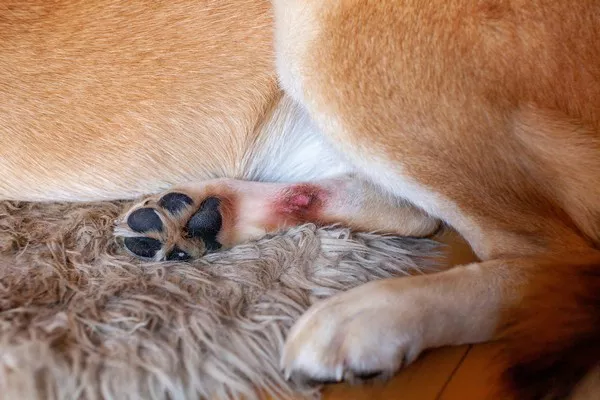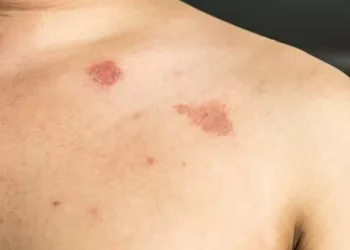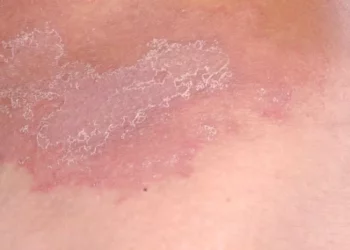Ringworm, despite its misleading name, is not caused by worms but rather by a group of fungi known as dermatophytes. These fungi can infect various parts of the body, including the skin, hair, and nails, causing a characteristic ring-shaped rash. While ringworm is often associated with humans, it is also a common concern in our furry companions, particularly dogs. Understanding how ringworm spreads in dogs is crucial for effective prevention and management strategies.
The Role of Dermatophytes:
Dermatophytes responsible for causing ringworm in dogs primarily belong to three genera: Microsporum, Trichophyton, and Epidermophyton. These fungi thrive in warm, humid environments and are highly contagious. They can survive in the environment for extended periods, making transmission relatively easy.
Modes of Transmission:
Ringworm in dogs can spread through various means, including:
1. Direct Contact: Direct contact with an infected animal is one of the most common modes of transmission. This can occur through activities such as grooming, playing, or sharing bedding with an infected dog.
2. Indirect Contact: Indirect contact with contaminated objects or surfaces can also facilitate the spread of ringworm. Fungal spores shed by infected animals can persist in the environment, contaminating items such as brushes, bedding, toys, and grooming tools.
3. Environmental Contamination: The fungal spores responsible for ringworm can survive in the environment for months, especially in warm and humid conditions. Infected hairs shed by affected dogs contribute to environmental contamination, increasing the risk of transmission to other animals.
4. Carrier Animals: Some dogs may carry dermatophytes without showing clinical signs of ringworm. These carrier animals can still shed fungal spores, serving as a potential source of infection for susceptible individuals.
Factors Influencing Spread:
Several factors influence the spread of ringworm in dogs:
1. Immune Status: Immunocompromised dogs, such as puppies, elderly dogs, or those with underlying health conditions, are more susceptible to ringworm infection and may experience more severe symptoms.
2. Environmental Conditions: Warm, humid environments provide optimal conditions for the growth and spread of dermatophytes. Crowded or poorly ventilated spaces, such as animal shelters or boarding facilities, pose a higher risk of transmission.
3. Hygiene Practices: Adequate hygiene practices, including regular grooming, cleaning of bedding and living areas, and proper sanitation of grooming tools, can help minimize the spread of ringworm.
4. Socialization and Contact: Dogs that frequently interact with other animals, whether through dog parks, grooming salons, or pet daycare facilities, have an increased risk of exposure to ringworm.
Clinical Presentation:
Ringworm infections in dogs can manifest in various ways, depending on factors such as the species of dermatophyte involved and the dog’s immune response. Common clinical signs include:
1. Circular Lesions: Ring-shaped lesions with central clearing are a hallmark feature of ringworm in dogs. These lesions may appear red, scaly, or inflamed and often cause itching and discomfort.
2. Hair Loss: Affected areas may experience hair loss, giving the coat a patchy or moth-eaten appearance. Hair shafts near the lesions may become brittle and break easily.
3. Skin Inflammation: Ringworm infections can cause varying degrees of skin inflammation, ranging from mild redness to severe irritation and crusting.
4. Secondary Infections: In some cases, ringworm lesions may become secondarily infected with bacteria, leading to additional complications such as pustules or abscesses.
Diagnosis and Treatment:
Diagnosing ringworm in dogs typically involves a combination of clinical examination, fungal culture, and microscopic examination of skin scrapings or hair samples. Wood’s lamp examination, although commonly used, may not always be reliable, especially for detecting infections caused by certain dermatophyte species.
Treatment of ringworm in dogs typically involves a multi-faceted approach, including:
1. Topical Therapy: Antifungal shampoos, creams, or ointments containing ingredients such as miconazole or chlorhexidine can be applied directly to affected areas to help eliminate fungal infections and soothe skin irritation.
2. Systemic Therapy: Oral antifungal medications, such as griseofulvin, terbinafine, or itraconazole, may be prescribed for more severe or widespread infections or cases resistant to topical treatment.
3. Environmental Decontamination: Thorough cleaning and disinfection of the dog’s living environment are essential to prevent re-infection and minimize the spread of ringworm to other animals or humans.
4. Isolation and Quarantine: Infected dogs should be isolated from healthy individuals to prevent further spread of the fungus. Quarantine measures may be necessary in multi-pet households or communal living environments to contain the infection.
5. Regular Monitoring: Close monitoring of the dog’s progress during treatment is crucial to ensure timely adjustments to the therapeutic regimen and assess treatment efficacy.
Preventive Measures:
Preventing the spread of ringworm in dogs requires a combination of proactive measures aimed at reducing exposure and minimizing risk factors:
1. Routine Veterinary Care: Regular veterinary check-ups and preventive care, including vaccinations and parasite control, can help maintain overall health and strengthen the immune system, reducing the likelihood of ringworm infection.
2. Hygiene and Sanitation: Implementing good hygiene practices, such as frequent grooming, cleaning of living areas, and disinfection of grooming tools, can help minimize environmental contamination and reduce the risk of transmission.
3. Isolation of Infected Animals: Prompt isolation of infected dogs and strict adherence to quarantine protocols are essential to prevent the spread of ringworm to other animals or humans.
4. Education and Awareness: Pet owners, veterinary professionals, and individuals working in animal-related industries should be educated about the risk factors, clinical signs, and preventive measures associated with ringworm to facilitate early detection and appropriate management.
5. Environmental Management: Implementing measures to control humidity levels, improve ventilation, and minimize overcrowding in communal living environments can help create less favorable conditions for fungal growth and transmission.
Conclusion
Ringworm is a common fungal infection that can affect dogs of all ages and breeds. Understanding how ringworm spreads in dogs is essential for implementing effective prevention and management strategies. By recognizing the modes of transmission, addressing risk factors, and implementing proactive measures, pet owners and veterinary professionals can work together to reduce the incidence of ringworm and promote the health and well-being of our canine companions. Early detection, prompt treatment, and strict adherence to hygiene protocols are key to minimizing the impact of ringworm on dogs and preventing its spread to other animals and humans.

























